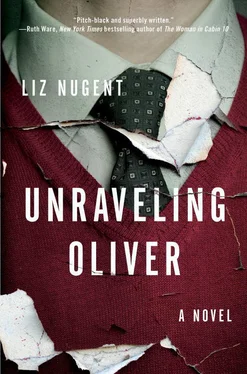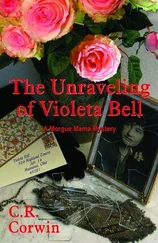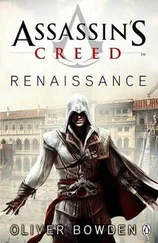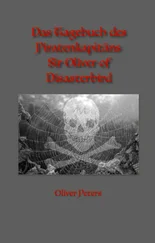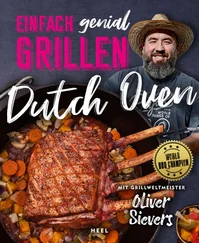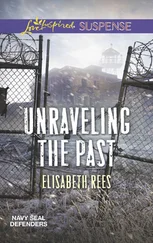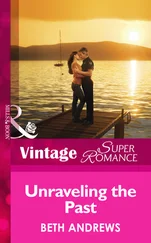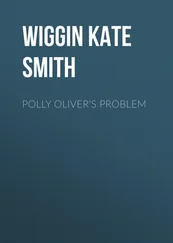I gave my reply much consideration and thought that maybe the family had a right to the truth, but what good would it have done them? I knew from my friend in Bordeaux that the baby had been handed over for adoption, but Laura had not kept in touch in the intervening months. Even if Laura’s family knew, even if they wanted the child, it would have been too late. I wrote a letter telling some truth but withholding the bigger truth: I was shocked to hear the news; I knew nothing of a miscarriage; Laura was a wonderful person who was deeply missed by all at Château d’Aigse; she was a fantastic help to me personally in getting over my own loss. I told them to be proud of such a brave and beautiful girl. I sent my condolences to the family and passed on my best wishes to Oliver too.
• • •
My father visited me in a dream the night I mailed the letter. In the dream, we both knew he was dead and yet it was peaceful and natural for us to be chatting as we used to. He told me to start again and not to allow the past to destroy my future. I must begin to live once more and not permit the tragedies of the previous eighteen months to blight my chance of happiness. He touched my cheek the way he did when I was a child and kissed the top of my head twice, one kiss from him and one from Jean-Luc.
To try to rebuild Château d’Aigse or to sell up and move away? There seemed no way for me to start again on my own. The vineyard, the orchard, the olive grove had not been tended since the fire, but I had neither the inclination nor the energy. The money and the kindness of our neighbors could not be relied on indefinitely either. They felt they owed a debt to my father, but that generation was aging now and the younger ones owed us nothing, although I knew I would not be refused help if I asked for it.
I eventually decided to sell up and planned to move to a town my cousin lived in, perhaps twenty-five miles from Clochamps, but the day after the estate agent posted the notice in the paper, I had a visitor.
I had not seen Pierre since the week that Jean-Luc was conceived. I had made myself forget about him as best I could. Up until now, he had kept his word and stayed away, but news had filtered through to him in Limoges from his uncle that a minor scandal had followed roughly nine months after Pierre’s visit. His uncle had warned him to stay away and not to get involved for fear of disgracing his own family. They knew that I had raised this child with my father until the fire killed Papa and my boy, and that now I was on my own. Pierre and his uncle guessed he must be Jean-Luc’s father, and Pierre very much regretted that he’d had no part in his life. He had sought a divorce from his wife, who, he was sure, was having an affair with a local magistrate and had left him, taking their twin girls with her. He had never stopped thinking of me, had written several times over the years and then torn up the letters, still loved me with all his heart, he said, and that I was his first love.
I was astonished that a long-held fantasy could come true, and when this sweet and gentle perfect man offered to care for me, and adore me, I could not resist because love and care were the things I now craved, and to get them from the man who I had not dared to think about for seven years was the answer to a dream. He was shocked and disturbed when I admitted I had chosen him as a father, and wept bitter tears that he never got to meet his son, and what could I do but apologize for my deceit. Gradually, as I related the stories and anecdotes from the brief life of our son, I began to heal and Pierre got a sense of who his boy had been. I assured Pierre that Jean-Luc was as beautiful as his daddy.
This time, with nothing to prove and nothing to lose, I allowed Pierre into my life as I could share my grief and return his love, and we have grown older and closer to the point that he is now my life. We were not blessed with another child of our own—it was too late for me—but I have a wonderful relationship with Pierre’s two girls, who come every summer now and bring their own children and help with the culinary school.
Pierre and I married quickly. We reasoned we had spent enough time apart. We decided to take the château off the market. Pierre had learned well from his butcher uncle in those early years, and now owned a thriving meat-processing plant in Limoges, which he was able to relocate to our little village, bringing the life and employment to our region that Château d’Aigse could no longer provide. We sold the vineyard, the orchard, and the olive grove, keeping ten acres of our own, with the proviso that it would remain zoned as agricultural and would not be developed.
We had begun the restoration of the east wing, but my heart was not in it. For me, it was filled with ghosts and unhappy memories. I wondered if there was wisdom in rebuilding this part of the château. Who would live in the bedrooms, and who was there to read in the library? It had been destroyed once by Nazis and again by fire, and I could not be enthusiastic about this project. Once the debris had been cleared and the main staircase rebuilt, I decided to shut off the eastern wing indefinitely. It was not a question of money, though we certainly could not be extravagant, but Pierre convinced me that we were a team and that when the time was right, we would know what to do.
The Irish boy Michael and I kept up a sporadic correspondence after my initial response to the news of Laura’s death. He told me he had opened a restaurant, which surprised me—not that he wasn’t instinctively good at cooking, but I thought that he’d been interested in hairdressing. He credited me for introducing him to new tastes and culinary experiences and insisted that he would never have taken such an interest in food were it not for having such an excellent teacher. He would write sometimes from exotic locations, describing the new recipes or ingredients he had discovered, and I would suggest ways to alter or improve upon them. He invited me and my new husband several times to come and stay in Dublin and visit his restaurant, but I never did. The truth is that we would inevitably talk about Laura, and I was afraid that I would not be able to keep up the pretense that she had left Château d’Aigse in a happy and healthy state of mind. I allowed the correspondence to lapse eventually. It seemed there was little point in maintaining it.
Michael inspired my project, however. I knew about food, the sourcing, preparation, cooking, and presenting of it, and I knew I had taught him well. I began to form a plan, and when I asked Pierre’s advice, he caught my excitement and together we consulted architects and drew up a business plan.
Instead of restoring the east wing, we would create a purpose-built residential culinary school with lodgings above. We were insistent that the new building would be architecturally sympathetic to the original house and that it could be built within the existing walls so as not to destroy the aesthetic. It made complete sense. With a little help, I was already entirely capable of feeding groups of thirty twice a day on a daily basis. How much easier would it be if the thirty were to do the cooking themselves? Actually, we soon realized that we could take groups of no more than fifteen at a time, as it was not possible to house and instruct any more than this. Structurally, the interior would be very different from the original building and naturally fireproofed from top to bottom.
We have built the business since we opened our doors in 1978, and though I still supervise every aspect, we employ a full-time staff of at least seven, depending on the demand, and I can take a backseat when I want to. We now have an international reputation for excellence, several awards, and visitors from all over the world. I even reestablished contact with Michael to spread the word of our venture to Ireland, and he has sent us many new students. Pierre and I have traveled and studied several languages. Fifteen years ago, Pierre sold the meat plant and joined me in Cuisine de Campagne. We use our ten acres to grow fruit, herbs, and vegetables and source our meat and cheeses locally. We have good years and bad years, but there is usually a waiting list for the school. It is only because we opened it that we have finally discovered something else that happened in the summer of 1973, a long-kept secret of theft, deceit, and cruel betrayal. Oliver Ryan is a monster.
Читать дальше
